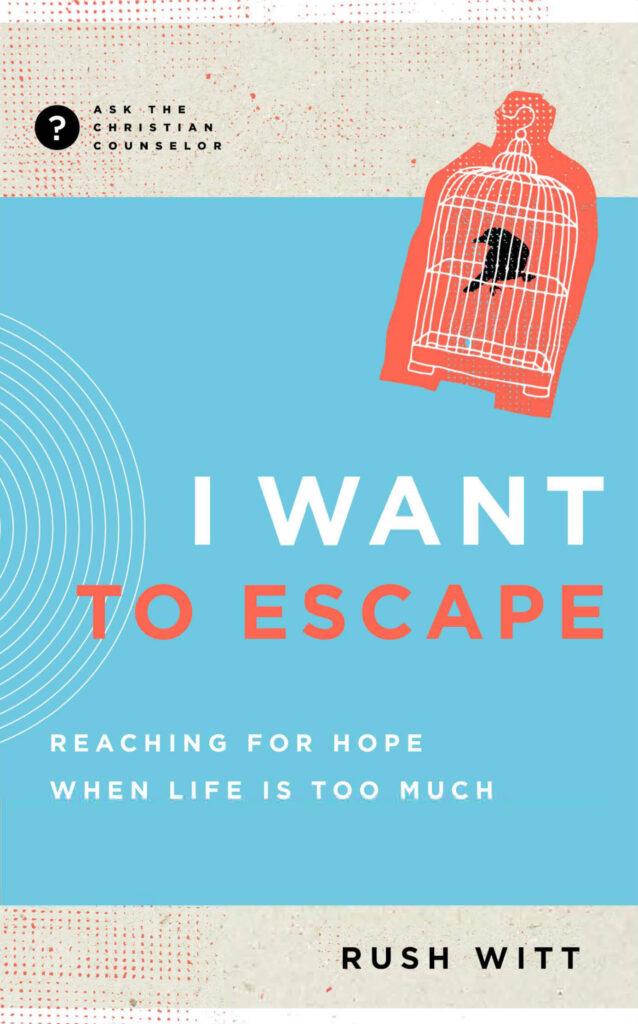Two hundred years ago, Thomas Chalmers (1780–1847) wrote an essay explaining how the old, settled ways of our hearts can change. He titled the article, “The Expulsive Power of a New Affection,” and discussed how to dislodge sinful desires or love of the wrong things. Can you read between the lines of this title to see the great problem we all face? If change requires the force of an expulsive power, then our innate desires must be firmly stuck and tough to dislodge.
We can put it simply: changing is hard. I’ve learned to put it simply because my path to personal change has been slow and bouncy. Our growth resembles a ski lift—jerking and swaying up the mountain—rather than a smoothly ascending escalator. This common experience frustrates many of us, as we wonder to ourselves, why is change so slow and hard?
Change Is Difficult Because Spiritual Habits Are Settled
In part, breaking our natural tendencies and experiencing spiritual growth is hard because we are creatures of habit. While repeated practice can build good habits (like regular Bible reading), repeated practice can also build bad habits (like giving in to the temptation to impulsively spend money). As I’ve paid attention to this trend, I’ve noticed a settled habit in myself and other people—the desire to escape hard things. Like me, you can probably see in yourself a desire to run away from difficulty.
Over time, my escape response has been practiced over and over, and it has become a settled struggle which is now slow and hard to change. Another habit I’m struggling to change is looking at my phone first thing in the morning. I’ve owned an iPhone for almost twenty years. Every night I look at it and set it on the nightstand milliseconds before I fall asleep. And milliseconds after waking, I snatch it from the table and swipe the screen to check Twitter. Let’s see, twenty years of nights and mornings means I’m approaching 8,000 reps. Now, that’s a settled habit. I know it’s not best, but I feel helpless against it most of the time.
But there’s a deeper reason change is slow and hard for us.
Change Is Difficult Because Spiritual Troubles Are Heart-y
As a pastor and counselor, I’ve read a lot of self-help books to see what kind of assistance they offer readers. Even though many of these include common sense wisdom, these books tend to fall short because they overlook the ever-so-important role of the human heart. Proverbs 4:23 reminds us to “guard [our] hearts” because from our hearts flow all the issues of life. Our hearts are the command centers of our lives, as the place of worship, desires, beliefs, affections, and a myriad of other regular and essential dynamics of life. And our hearts pose the main reason change is slow and hard.
If we wish to understand ourselves and how we can change, we must set our eyes squarely on our dynamic hearts. We must ask questions like: What do I want? What desires are ruling over me? Who or what do I love most? What do I crave? What are my biggest hopes and fears? By finding answers to these questions, with God’s wisdom and help, we are well on our way to seeing the deepest troubles changed.
In my recent book, I Want to Escape: Reaching for Hope When Life Is Too Much, I explored this settled, heart-y desire to escape when life overwhelms. And I realized anew the importance of being heart-focused when thinking through these settled patterns and responses that show up in our lives. Learning to go God’s way instead of our escapist ways is a lifelong project, which starts with uncovering the beliefs and desires within our hearts that drive us to escape. It might be hard to see the truth about ourselves, but how else will we change and grow? We must not only recognize the settled habits which make our troubles feel so unwieldy, but we must also get to the heart of the matter, which is always a matter of the heart.
But wait!, you might think, Now I feel even less hopeful about my prospects of growing up and out of my settled heart problems! I kind of feel that way too. I mean, if our spiritual troubles are settled like enormous bad habits in the depth of our very souls, what hope do we have?! Ah, and that’s where Thomas Chalmers comes in with big, bright, freeing truth. Our hope of change rests firmly on the expulsive power of God’s grace!
Powerful Grace Can Change Us
No matter what need for change we find in ourselves or other people—whether longing to escape, fearing others, addiction to drugs and alcohol, anxiety about life decisions, despair over a disappointing diagnosis, anger with God, bitterness about past hurts, or a thousand other issues—our ultimate hope is that God’s long arm of grace can reach us. For this very purpose, Jesus has entered our world with a vibrant and warm understanding of our true needs, and he has brought us his own powerful answers.
By hearing the good news of Jesus with faith, God’s grace delivers to our hearts the new affections Thomas Chalmers talks about in his article. These new affections carry the power of a mighty, spiritual wind to dislodge the stubborn affections which tend to settle into our hearts and lives. We have incredible hope for change in the good news. Jesus has the power to expel these old affections and leads us into big, bright, new affections for him! When faced with the slow, hard reality of change in our lives, we don’t need to despair and run, but we can courageously depend on Christ and his life-changing grace.
I Want to Escape: Reaching for Hope When Life is Too Much
When life overwhelms, it’s natural to try to get away. Escape holds a powerful allure amid hard times. Even though we have many good reasons for trying to escape, as Christians, we have even better reasons to depend courageously on our Savior in the ups and downs of life. Pastor Rush Witt helps us learn to bravely run to Christ instead of running away.






